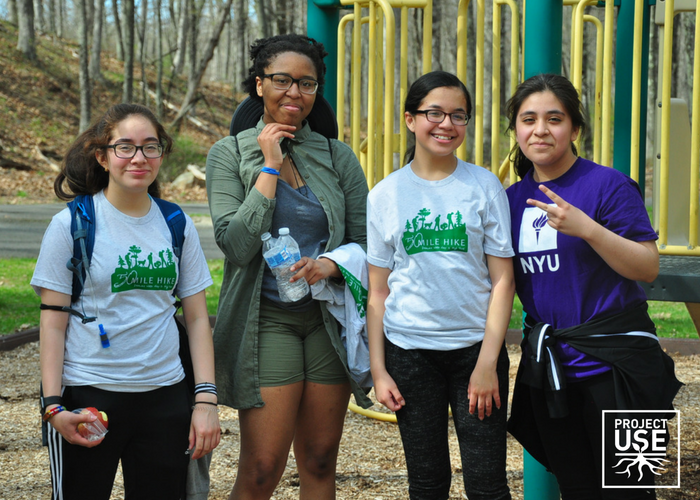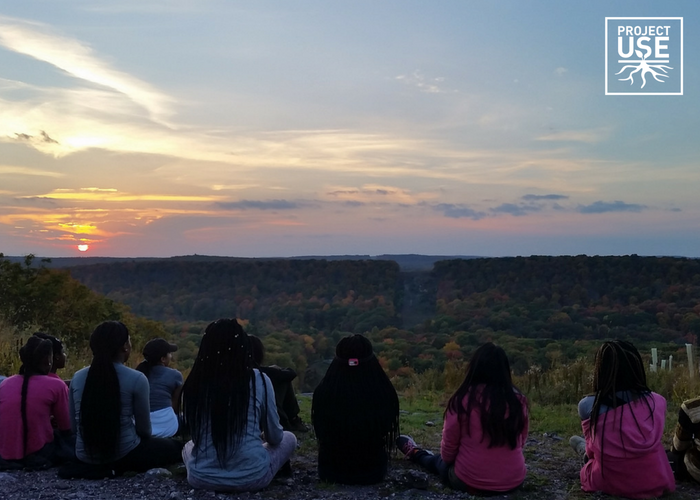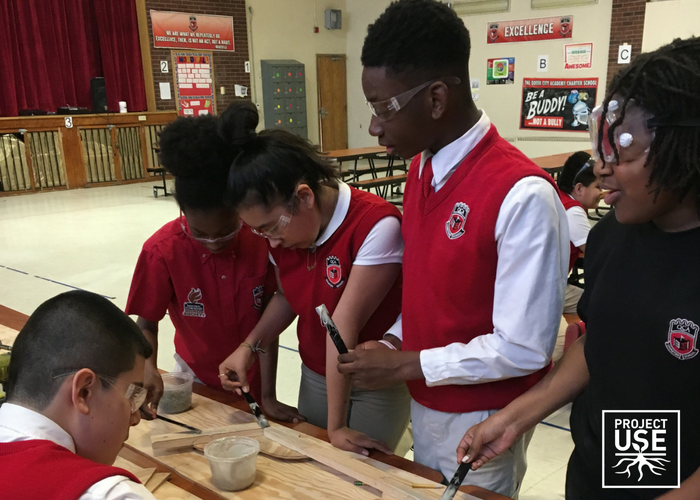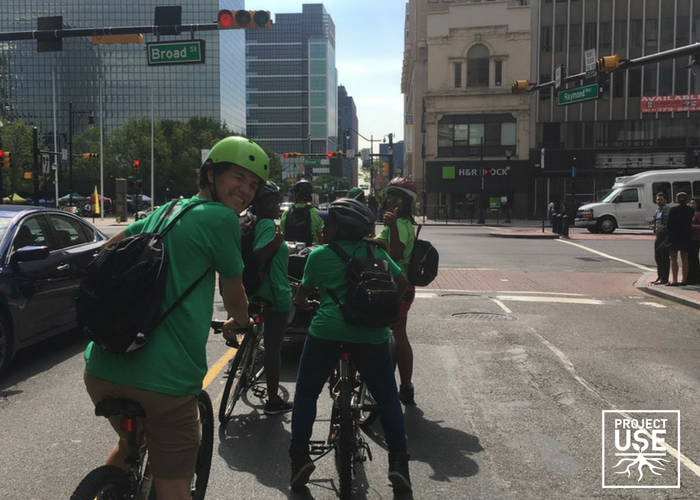
Project U.S.E.: Learning By Doing, Indoors and Out
The motto of Project U.S.E. is “living education since 1970.” That’s because the students enrolled in Project U.S.E. aren’t sitting in classrooms, but hiking in the wilderness and learning survival skills, building boats, or learning the ins and outs of urban farming, just for example. In short, these kids are learning by doing: the best possible way to learn anything and everything.
Learning by doing is something we can really get behind at Kars4Kids, because we know it works. And so we were happy to give a small grant to Project U.S.E. We like the idea of partnering, in a small way, with experiential learning.
Project U.S.E. began with the vision of Phillip Costello, a marine with a degree in education who loved working with youth in the great out of doors. His vision was realized with the creation of Project U.S.E. which has touched the lives of hundreds of thousands of New Jersey youths. We spoke with the staff at at Project U.S.E. to learn more about the work of this far-reaching organization.
Kars4Kids: What kind of practical skills do kids learn in Project U.S.E.’s “living classroom”?
Tracy Semar, Wildcat Mountain Wilderness Director: Our participants learn a variety of skills throughout our different programs including: positive communication skills, perseverance, working as part of a team, thinking creatively, problem solving, different leadership techniques and self-reliance.

Kars4Kids: Tell us about your 50,000-acre wilderness center. That must take a lot of upkeep! Do the student participants help with that?
Tracy Semar, Wildcat Mountain Wilderness Director: Our staff work hard to stay on top of the maintenance for our wilderness center but our students are integral to keeping it looking its best! One of the main principles here at Wildcat is called “Leave No Trace.” This is an ethic of the outdoor community and we use it to guide our students about how to take care of the environment. We encourage them to take only pictures and leave only footprints. They actively participate in picking up trash and removing items that don’t belong outside.
Kars4Kids: You have a boat-building program. How do you ensure the results are sea-worthy? What happens to the boats after the program is completed?
Jen Reich, Program Director, Boat Building and Pedal Farmers: We follow the blueprints very closely; measuring to 1/16 of an inch, and then cut as precisely as possible. As we are assembling the sides and bottom we use a waterproof epoxy glue to seal all the seams. Once the boat is completed we have a boat launch event to test out the boats in local waterways. We have never had a boat leak! Each school does something a little different with the boats; some are used regularly, some are kept on display, some are auctioned to raise funds for future boat builds, some are turned into garden planters, and once I saw a boat converted into bookshelves.

Kars4Kids: Do students have to own a bicycle to become Pedal Farmers?
Jen Reich, Program Director, Boat Building and Pedal Farmers: No, in fact we buy refurbished bicycles for the Pedal Farmers to use and then teach them to maintain the bicycles. We also teach safety signals and how to ride safely as a group. At the end of the program each Pedal Farmer can take home the bike used during the program along with a helmet and a bike lock. Our students also do not have to know how to ride a bicycle. We will teach them.
Kars4Kids: What does urban farming teach young people?
Jen Reich, Program Director, Boat Building and Pedal Farmers: Every young person who engages in urban farming also engages in the community in a positive way. Our students are involved in the building up and cultivating of gardens in order to beautify neighborhoods. They see the positive impact of their work as neighbors walk by and are pleased to see what a once empty lot has become. Additionally, Project U.S.E. students are taught how to grow their own food and they learn about the healthy impact that local organic produce has on any person. Even in the city, young people, or anyone, can support themselves and the community by growing food.

Kars4Kids: The founder of Project U.S.E., Phil Costello, had a credo, which began with, “Remember to be a giver, not a taker.” How does this perspective work in terms of how Project U.S.E. participants relate to those with less?
Tracy Semar, Wildcat Mountain Wilderness Director: It’s such an important tenet of our entire program and the fact that it applies to anyone of any age, race, gender, orientation, religion or socioeconomic status is what makes it so valuable. Being a “giver” isn’t about how money or stuff you have—it’s about what you can personally offer to the world.
What is that skill? Is it kindness? Is it helping someone in need? Is it being a force for good in your community? Can you teach someone something? It’s about anyone in any position feeling empowered to make change: don’t always think about yourself, think of others and it will benefit everyone.
Bob Goger, Professional Development Consultant: This was the key core belief in Phil’s credo. And with this belief, he seemed to be trying to convey a secret potion that releases the magic of a Project U.S.E. experience, whether a Wildcat adventure or an on-site workshop, on land or water, with many or few. For the experience to be ultimately successful, the participants will have to feel that they have given themselves up—to the mysteries of nature, to the care of their instructors, to the encouragement of their peers. And this generosity of spirit is what embraces them the instant they get off the bus, or join an orientation circle, or in any other way meet their program instructors. A “letting go” of self-interest gives way to a “looking out” for mates, both new and re-met. It’s in this environment that the potential for learning grows in direct proportion with the sense of other-mindedness. We are urged to create this Project ethos by living it.
Kars4Kids: What about “Never be satisfied with your work.” Isn’t it okay to look back over what you’ve accomplished and feel good about it?
Tracy Semar, Wildcat Mountain Wilderness Director: You’re right, it’s important to look at your progress and appreciate your accomplishments! To me, this has always meant “don’t be complacent and don’t assume you know everything.” You should seek out ways to improve and you should always be learning—it benefits you by keeping you engaged and competent in your skills and it benefits the individuals we work with to be able to offer them different things.
Bob Goger, Professional Development Consultant: Being good at our work virtually implies that we are always trying to get better. Helping groups of young people transform themselves into successful teams fosters the sense of “a job not yet completed.” It means that any given group we work with could get even better at this now that they’ve experienced team power. And there are plenty more groups out there who don’t often get to play in the outdoor classroom. We should be itching to bring them out with us where they can “learn by doing.”
Kars4Kids: What’s next for Project U.S.E.?
Jeff Key, Director of Operations: Project U.S.E. will continue to work on developing innovative programs that provide students with unique experiential education opportunities. Recently, we’ve started to receive more interest from schools and community organizations about developing community, school, and indoor gardens and will be developing a new programming curriculum in that area. We’ll also be looking to offer new professional development opportunities and workshops for companies and organizations on-site and at our Wildcat Mountain Wilderness Center—after all, learning by doing applies to adults just as much as teenagers and younger kids!